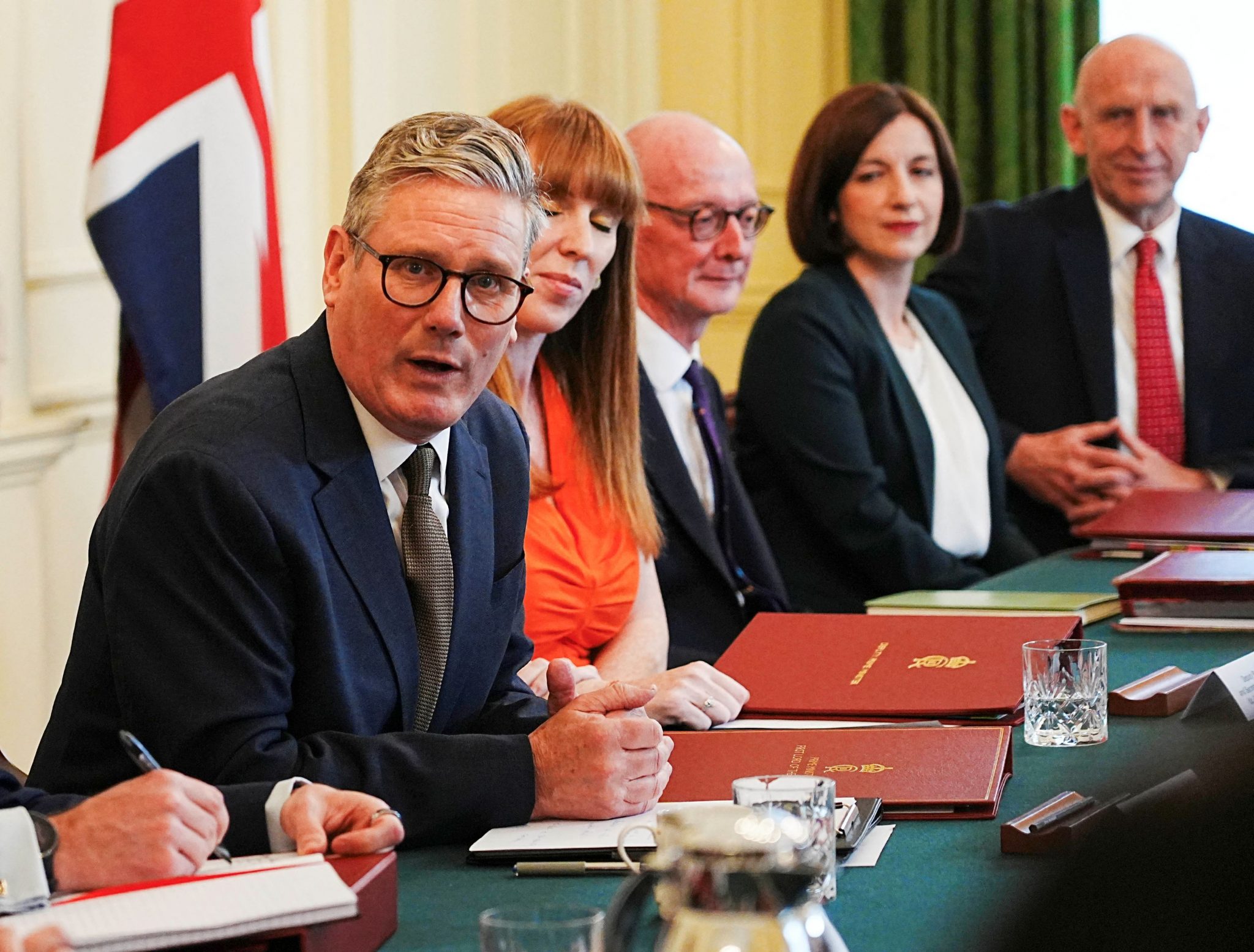Britain’s opposition Conservative Party picked Kemi Badenoch as its new leader Saturday, betting that a relatively untested conservative culture warrior can reassert control over the right-wing of British politics after the party suffered a historic defeat at an election in July.
Badenoch, 44, who is the first Black woman to lead a major political party in Britain, campaigned on a platform of redefining the Tories as a party of pragmatism that cracks down on illegal immigration, trims the state and embraces cultural conservatism.
While in government “we talked right, but governed left,” she said recently, explaining why her party slumped to its worst performance in 200 years against the Labour Party at the last general election.
“To be heard we have to be honest,” she said after she was selected for the role following a ballot of Tory party members. “Honest about the fact we made mistakes and honest that we let standards slip. The time has come to tell the truth.”
The former trade secretary, who was born in London but spent part of her childhood in Nigeria, is known for her no-nonsense, straight-talking style which at times in the past has both energized and exasperated her Conservative colleagues. She first entered parliament in 2017 and quickly rose through the ranks by championing Brexit and anti-woke policies. She replaces former Prime Minister Rishi Sunak and becomes the sixth Tory leader in eight years.
The selection sets the stage for an ideological battle over Britain’s direction. Badenoch faces a challenge on two fronts: Taking on Prime Minister Keir Starmer , who is betting on a big state and big taxes to fix Britain’s woes, and upstart politician Nigel Farage, whose Reform UK party has drawn millions of Tory supporters by promising a harder line on illegal migration.
Badenoch has argued Labour’s approach is wrongheaded. During her campaign, she said the British state had become too big and unproductive. She also said that net zero targets were harming economic growth prospects. She pledged to lay bare the trade-offs that are involved with small-state, lower tax, government and be a leader “who tells the truth because the truth will set us free.”
Badenoch is relatively little known among the British public and so far not popular. Only 12% of Britons have a favorable opinion of her, according to pollster YouGov .
How she tackles Farage is less clear. Her views on immigration are less well-defined. She says Britain must do better to control its borders but has shied away from pledging to pull the country out of a European human rights convention to make it easier to deport people seeking asylum.
For some political analysts, Badenoch faces a tension in trying to win back the roughly 14% of voters who voted for Reform without alienating centrist voters that also make up a key part of the Tories coalition.
“All of this begs the question: Having won by appealing to the party members—who are themselves to the right of the average conservative voter—whether she will then tilt to the center or feel the need to continue to play further out to the right,” said Tony Travers, a politics professor at the London School of Economics.
The outlook for the party Badenoch inherits isn’t rosy. The Tories’ brand is damaged after years of infighting over policy direction, poor management of Britain’s divorce from the European Union and a drumbeat of scandals. The Conservatives have traditionally been seen as the party of fiscal responsibility and border control, but under their 14-year watch growth stagnated and a record number of migrants arrived.
But with another election not due until 2029 at the latest, the Tories have time to regroup. And the incumbent Labour Party, which has a big majority, has had a difficult start to its tenure. Its popularity has fallen since the election and it has imposed the biggest tax hike in a generation as it seeks to fix Britain’s public services.
Badenoch made waves as a junior equalities minister under then Prime Minister Boris Johnson , when she enraged many on the left by endorsing a report challenging the notion that there was widespread institutional racism in Britain. She has in the past defended colonialism, saying that good as well as bad things came out of Britain’s empire. She has also weighed in on the gender debate stating support for single sex toilets and domestic violence shelters for people who are solely biologically women. Her confrontational style continued during her Tory leadership campaign where she said that maternity pay had gone too far.
“I will not stand there and let people punch me. If you swing at me, I will swing back. But I don’t look for fights,” she once said.
Write to Max Colchester at Max.Colchester@wsj.com




